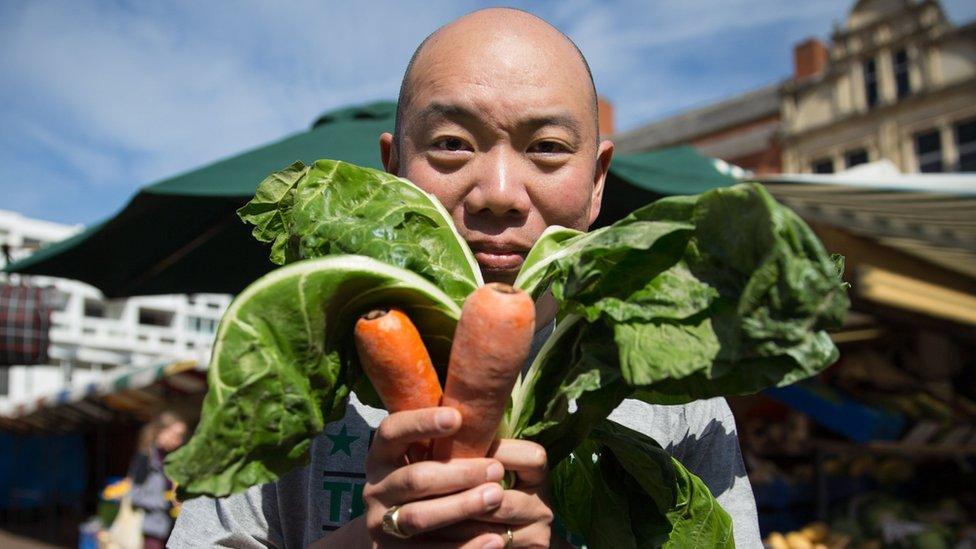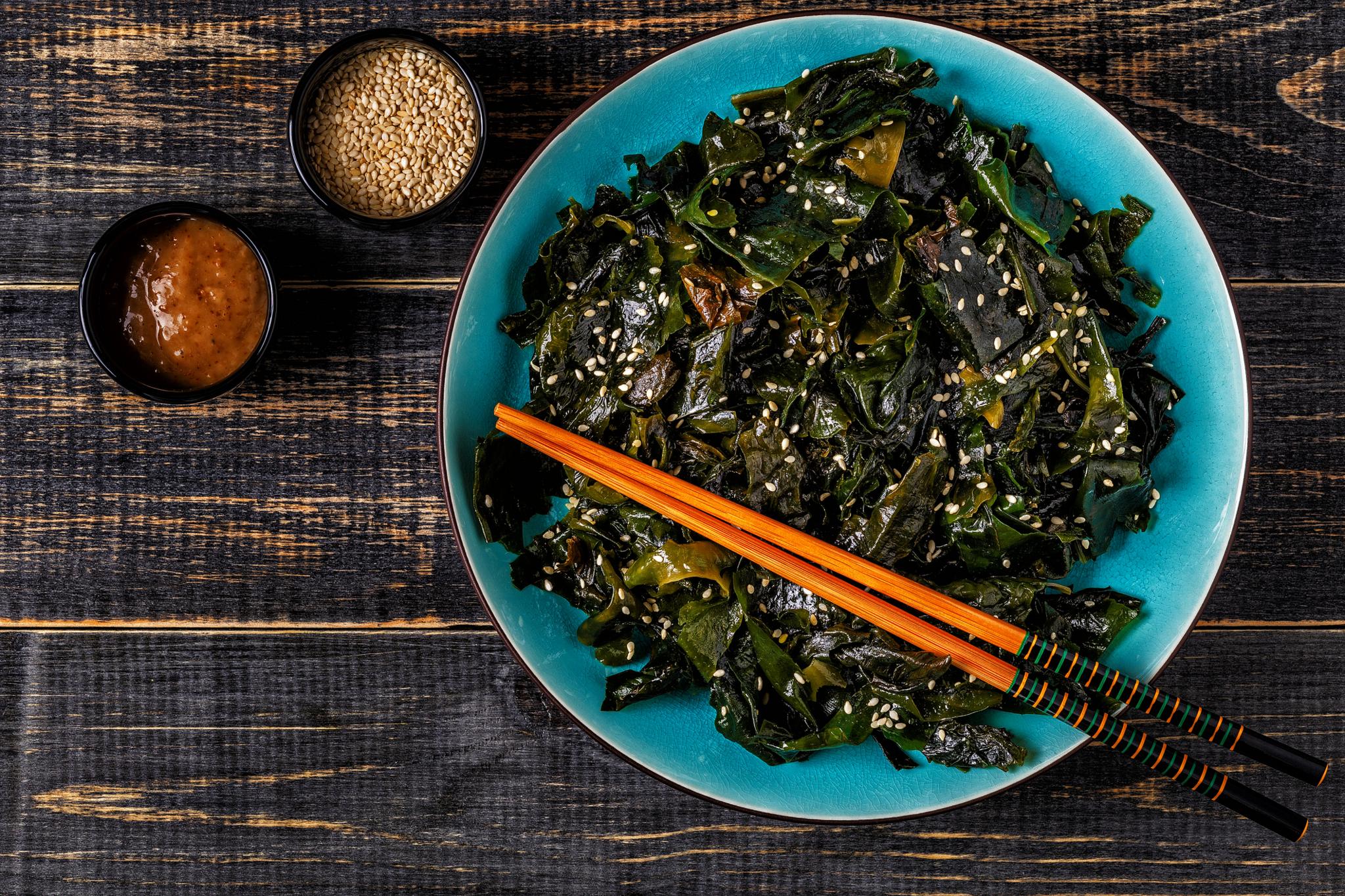Will going vegan make you healthier?
- Published

Dr Yeo tried the vegan diet for a month
There has been an explosion in interest in veganism, in recent years, driven largely by concerns about health, animal welfare and the environment.
Vegans, for the uninitiated, do not eat meat, poultry, fish, or any products derived from animals, including eggs, dairy products, and gelatin.
There are now four times as many vegans in the UK as there were four years ago.
So how hard is it to convert, and what are the potential health benefits?
Veganism: Why is it on the up?
Going vegan: Is it just a fad?, external
What does a healthy vegan diet look like?
For the latest series of Trust Me I'm A Doctor, Dr Giles Yeo decided to try it for a month and see if it was a lifestyle he could imagine adopting.
As Dr Yeo quickly discovered, one of the tricky things about going vegan is that many products that don't sound as if they have anything to do with animals actually do.
Eggs, cheese and meat are obvious no-nos but so is mayonnaise (contains eggs), some pastas (ditto), and wine (some alcoholic drinks use fish bones or proteins from other animals as part of the production process).
As well as making sure you are not accidentally consuming animal products, one of the main challenges of going vegan is to make sure you're not missing out on any key nutrients.
Following a vegan diet puts you at risk of getting insufficient vitamin D, which is needed for bone health.
To get this through diet, vegans may need to rely on fortified foods, including some types of soy milk, rice milk, organic orange juice, and breakfast cereals.
You may also want to consider taking a vitamin D supplement.

Seaweed is a good source of iodine
Iodine deficiency is very common in the UK, particularly among young women.
Cow's milk is our main source of iodine and non-dairy alternatives, such as almond milk, have much lower levels. You can get iodine from seaweed (though the amounts are unpredictable) but you will probably need to take a supplement.
The other big concern is getting enough vitamin B12. You won't find it in seeds, nuts or vegetables, so vegans and vegetarians will need to stock up with fortified breakfast cereal or nutritional yeast.
Does it work?
Will going vegan make you healthier?
A recent analysis, external, which pulled together the results of 10 previous studies comparing the health of vegetarian and vegans against that of omnivores, suggests it will.
The researchers found being a vegetarian or vegan was associated with a significantly lower risk of heart disease and cancer, though there was no difference in all-cause mortality.
In other words, being a vegetarian or vegan was associated with being healthier but not necessarily with living longer.
I say "associated with" because these were not the gold standard randomised controlled studies, where you take a large group of people and randomly allocate them to being vegan or omnivorous and see what happens. Such studies would be very hard to do.
Instead, they compare people who are vegans with meat eaters and look for differences.
Since vegans are likely to be more health conscious than the general population, it is possible that the health differences have nothing to do with the diet itself.
So how did Dr Yeo get on? After being vegan for a month he had lost 4kg and brought in his belt by a notch. Along with the fall in his belly fat, his cholesterol also fell by 12%.
So will he keep it up? "I've been pleasantly surprised," he said, "and though I don't plan to go vegan entirely, from now on I'll try and do at least a few days every month.
"I have to admit I was apprehensive about going vegan for a month, but once I learned a few recipes I was fine and I actually ended up enjoying it. For me, the key was not to cook vegan versions of meals that I would normally eat with meat, but to opt for recipes that were designed to be vegan in the first place.
"What I missed most while on the diet was eggs - I actually expected to miss meat a lot more."
If you want to find out more about the benefits and risks of going vegan visit Trust Me I'm A Doctor.